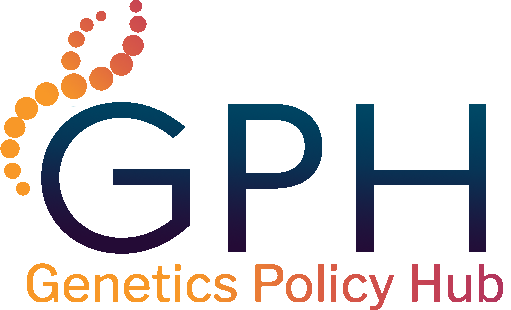From 2004 to 2024, the Health Resources and Services Administration (HRSA) funded the National Coordinating Center for the Regional Genetics Networks (NCC). NCC developed and maintained the Genetics Policy Hub.
With the conclusion of NCC funding, the Genetics Policy Hub (GPH) will no longer be updated or maintained. Information on GPH should be used for historical reference only.
Nevada
This data is meant to be used for educational purposes to inform providers, patients, insurers, and state Medicaid agencies what genetic services may or may not be written into each state’s Medicaid policy. The database is not meant to indicate or imply whether a certain program will cover a specific service, since many decisions are made on a case by case basis. If you have specific questions about whether a service is covered, you should reach out to your plan administrator. Please see this disclaimer below for more information.
Medicaid Coverage Information Published
State Contact Information
Stacie Weeks
Medicaid Administrator
Division of Health Care Financing and Policy
Las Vegas Medicaid District Office
1210 S. Valley View, Suite 104
Las Vegas, NV 89102
Phone: (702) 668-4200
https://medicaiddirectors.org/wp-content/uploads/2023/06/Public_DirectorsList_June2023-1.pdf
General Genetic Testing Criteria
Genetic Testing Not Covered
Cell-free DNA Screening (NIPS = Non-Invasive Prenatal Screening) Blood test. Screens for Trisomy 13, 18, 21, and sex chromosome abnormalities. Conducted 1st trimester or beyond.
DNA Blood test. Detects specific gene mutations. For example, parents are carriers of the Cystic Fibrosis gene and request prenatal diagnostic testing for this specific mutation
State Specific Definition
Genetic Services for Children
Genetic Counseling Requirement
Genetic counseling must precede genetic testing for hereditary cancer.
Metabolic Formula Coverage Legislation
Nevada Revised Statutes
Chapter 695B – Nonprofit Corporations for Hospital, Medical and Dental Service
NRS 695B.1923 – Required provision concerning coverage for treatment of certain inherited metabolic diseases. by the patient during the length of stay.
Metabolic Formula Coverage & Criteria
Authorization of “medical foods” will be considered for recipients under the age of 21 years as an EPSDT service with a diagnosis of an inherited metabolic disease in which treatments are restricted and a monitored diet consisting of specially formulated low-protein foods are an established standard of care. The following inherited metabolic conditions fit the category, but are not limited to:
Phenylketonuria (PKU)
Homocystinuria
Maple Syrup Urine Disease
Definitions and qualifications:
- Medical foods refer to products designed for the specific nutrition management of a disease or condition for which distinctive nutrition requirements based on recognized scientific principles are established by
medical evaluation. - “Inherited metabolic disease” means a disease caused by an inherited abnormality of body chemistry for which testing is mandated by law.
- Medical foods are products specially formulated or modified to have less than one gram of protein per serving. This does not include a food that is naturally low in protein.
- Medical food is prescribed by and consumed under the direction of a physician or the dietary treatment of a qualifying metabolic disease.
- The recipient is currently receiving comprehensive nutrition services by a physician and dietician for the dietary treatment of a qualifying metabolic disease.
- Medical foods specifically used to meet the distinctive nutritional requirements of a qualifying metabolic disorder and not generally used by persons in the absence of a qualifying metabolic disorder.
- Medical foods should be requested as part of an EPSDT supplement service.
- Medical foods are not food products readily available in the grocery stores and health food stores. For example, a child with diabetes could find a variety of foods in the grocery store to meet the child’s
nutritional requirements without specially formulated medical foods. - Approval will be limited to $2,500.00 per year unless proof of medical necessity exceeds that amount.
Prior Authorization Requirements
The ordering physician must obtain prior authorization for the following services, except for Medicare/Medicaid dual eligible recipients who are still eligible for Medicare benefits:
- Genotype and phenotype assay testing for recipients with chronic HIV infection prior to initiation of highly active antiretroviral therapy.
- Laboratory tests referred by a physician office laboratory directly to an out of state laboratory.
Prior Authorization Forms
Fee Schedule
BRCA Testing Coverage
BRCA1/BRCA2 testing services for individuals without a personal history of breast and/or ovarian cancer should
be provided to high risk individuals as defined below or as otherwise defined by the US Preventive Services Task
Force (USPSTF).
BRCA1/BRCA2 testing services for women with a personal history of breast and/or ovarian cancer and for men
with a personal history of breast cancer should be provided as defined below or as otherwise defined by the NCCN
Clinical Practice Guidelines.
If the mutation in the family is known, only the test for that mutation is covered. For example, if a mutation for
BRCA1 has been identified in a family, a single site mutation analysis for that mutation is covered, while a full
sequence BRCA1 and BRCA2 analyses is not. An exception to this can be considered if a Certified Genetic
Counselor presents sufficient justifiable need.
If the individual is of Ashkenazi Jewish descent, test the three common mutations first. Then if negative, consider
comprehensive (“Reflex”) testing based on assessment of individual and family history as if the individual is of
non-Ashkenazi Jewish descent.
Requirements for BRCA
Frequency is limited to once in a lifetime.
BRCA1/BRCA2 gene analysis is covered for individuals meeting the following criteria:
- For individuals without diagnosis of breast or ovarian cancer:
- Two first-degree relatives with breast cancer, one of whom was diagnosed at age 50 years or
younger; - A combination of three or more first- or second-degree relatives with breast cancer regardless of
age at diagnosis; - A combination of both breast and ovarian cancer among first- or second-degree relatives;
- A first-degree with bilateral breast cancer;
- A combination of two or more first- or second-degree relatives with ovarian cancer, regardless of
age at diagnosis; - A first or second-degree relative with both breast and ovarian cancer at any age;
- History of breast cancer in a male relative; or
- For women of Ashkenazi Jewish descent, any first-degree relative (or two second-degree relatives
on the same side of the family) with breast or ovarian cancer.
- Two first-degree relatives with breast cancer, one of whom was diagnosed at age 50 years or
- A family history of breast or ovarian cancer that includes a relative with a known deleterious BRCA
mutation; or - A personal history of breast cancer plus one or more of the following:
- Diagnosed at age ≤ 45 years;
- Diagnosed at age ≤ 50 years with ≥ 1 close blood relative with breast cancer diagnosed at any age
or with a limited family history; - Two breast primaries when first breast cancer occurred at age ≤ 50 years;
- Diagnosed at age ≤ 60 years with a triple negative breast cancer;
- Diagnosed at age ≤ 50 years with a limited family history;
- Diagnosed at any age, with ≥ 1 close blood relative with breast cancer diagnosed ≤ 50 years;
- Diagnosed at any age with ≥ 2 close blood relatives with breast cancer at any age;
- Diagnosed at any age with ≥ 1 close blood relative with epithelial ovarian cancer;
- Diagnosed at any age with ≥ 2 close blood relatives with pancreatic cancer or aggressive prostate
cancer (Gleason Score ≥ 7) at any age; - Close male blood relative with breast cancer; or
- For an individual of ethnicity associated with higher mutation frequency (e.g. Ashkenazi Jewish) no additional family history may be required.
- Personal history of epithelial ovarian cancer; or
- Personal history of male breast cancer; or
- Personal history of pancreatic cancer or aggressive prostate cancer (Gleason Score ≥ 7) at any age with ≥ 2 close blood relatives with breast and/or ovarian and/or pancreatic cancer or aggressive prostate cancer (Gleason Score ≥ 7) at any age.
Cystic Fibrosis Screening
No coverage.
Hereditary Cancer Testing Coverage
Yes, it is covered for hereditary breast and/or ovarian cancer mutations.
Lynch Syndrome Testing Coverage
Microarray Testing
Yes, this is covered for prenatal genetic testing.
Newborn Screening
Medicaid pays global or per diem rates to facilities. All newborns must receive a newborn screening blood analysis in accordance with NRS 442.008 and corresponding NAC 442.020 – 442.050. This testing is included in the facility per diem rate. Newborn screening is not required if parent or legal guardian objects in writing.
Panel Testing
Oncotype DXTM predicts the 10-year risk of distant recurrence and the likelihood of chemotherapy benefit in
women with ER-positive, HER2-negative, early stage invasive breast cancer. The application of gene expression
profiling using Oncotype DX TM is employed to identify patients who are predicted to obtain the most therapeutic
benefit from adjuvant Tamoxifen and may not require adjuvant chemotherapy. The Oncotype DX TM uses reverse
transcription polymerase chain reaction (RT-PCR) to determine the expression of a panel of 21 genes isolated
from formalin-fixed, paraffin-embedded tissue (FPET).
The Oncotype DXTM is considered medically necessary for eligible participants with diagnosed breast cancer as a
prognostic assay to identify who is most likely to respond to systemic chemotherapy. The assay aids in identifying
patients who are predicted to obtain the most therapeutic benefit from adjuvant Tamoxifen and may not require
adjuvant chemotherapy.
Oncotype DXTM breast cancer assay is covered for individuals meeting the following criteria:
- Patient has new diagnosed early stage (Stage 1 or Stage 2) breast cancer; and
- The patient’s breast cancer meets all of the following criteria:
- Unilateral non-fixed; and
- Estrogen-receptor (ER) positive OR progesterone-receptor (PR) positive; and
- Node-negative (isolated tumor cells and/or micrometastases [less than or equal to 2mm in size] i.e. pNO(i+) and/or pN1(mi), are not considered positive for the purpose of this guideline) or has 1-3 involved ipsilateral axillary lymph nodes; and
- Human epidermal growth factor receptor 2 (HER2)-negative; and
- Tumor size is >.5 cm.
- The Gene expression profile is ordered by the physician who will administer the hormonal and
chemotherapy, usually the oncologist, or the test is ordered by the treating surgeon after discussing the
patient’s clinical situation with the oncologist. - The assay is ordered within six months following diagnosis.
- The results will be used to aid in making the decision regarding chemotherapy:
- The recipient must be a candidate for chemotherapy or be treated with adjuvant endocrine therapy,
e.g. Tamoxifen.
- The recipient must be a candidate for chemotherapy or be treated with adjuvant endocrine therapy,
Frequency is limited to once in a lifetime.
May be billed more than once for the same recipient if the provider can prove that the recipient has a new
secondary primary breast cancer that meets the criteria listed.
Pharmacogenetic Testing
Prenatal Testing Offered
Nevada Medicaid covers current national guidelines, recommendations, and standards of care for prenatal screening and diagnostic testing.
Screening includes:
- First trimester and second trimester screenings. This does not include coverage of cell-free fetal DNA screening.
- Diagnostic testing includes obtaining specimens through amniocentesis and chorionic villus sampling (CVS) to conduct diagnostic testing such as:
- Karyotype chromosomal testing, fluorescence in situ hybridization (FISH) testing, and chromosomal microarray analysis.
- Comprehensive patient pretest and post-test genetic counseling from a provider regarding the benefits, limitations, and results of chromosome screening and testing is essential.
Nevada Medicaid does not reimburse for genetic counselors but does reimburse for providers that are physicians (M.D./D.O.), physician assistants, APRNs, or nurse
midwives. - All prenatal chromosomal screening and diagnostic testing should not be ordered without informed consent, which should include discussion of the potential to identify findings of
uncertain significance, nonpaternity, consanguinity, and adult-onset disease.
Medicaid covers the following prenatal genetic tests:
- 1st Trimester Screening Blood panel & ultrasound exam. Screens for Trisomy 18 and Down Syndrome (Trisomy 21)
- 2nd Trimester Screening “Quad Screen” Blood panel & ultrasound exam. Screens for Trisomy 18 and 21, and neuro tube defects.
- Karyotype: Cells taken from the amniotic fluid or placenta obtained through amniocentesis or chorionic villus sampling (CVS) – slight chance of miscarriage. Detects missing, extra, or damaged chromosomes by taking a picture of the chromosomes and arranging them in order from largest to smallest.
- Fluorescence In Situ Hybridization (FISH): Cells taken from the amniotic fluid or placenta obtained through amniocentesis or chorionic villus sampling (CVS) – slight chance of miscarriage. Detects common aneuploidies involving chromosomes 13, 18, and 21 and the X and Y chromosomes. Positive test results are confirmed with a karyotype.
Whole Exome Sequencing
Other Tests Covered
Other Information
Resources
Newborn Screening Reimbursement

Disclaimer: The information contained in the database has been obtained from sources believed to be reliable but NCC has not attempted to validate or confirm the information. The database may be updated periodically. However, the accuracy and completeness of the information contained in the database cannot be, and is not, guaranteed. NCC makes no warranty of the accuracy, completeness or timeliness of this information, and shall not be liable for any decision made in reliance on this information. It is the user’s responsibility to verify this information by contacting the state Medicaid agency directly.
The database contains links to third-party websites. These links are provided solely as a convenience to users and not as a guarantee, warrantee, or recommendation by NCC of the content on such third-party websites or as an indication of any affiliation, sponsorship or endorsement of such third party websites. NCC is not responsible for the content of linked third-party sites and does not make any representations regarding the privacy practices of, or the content or accuracy of materials on, such third-party websites. If you decide to access linked third-party websites, you do so at your own risk. Your use of third-party websites is subject to the terms of use for such sites.

